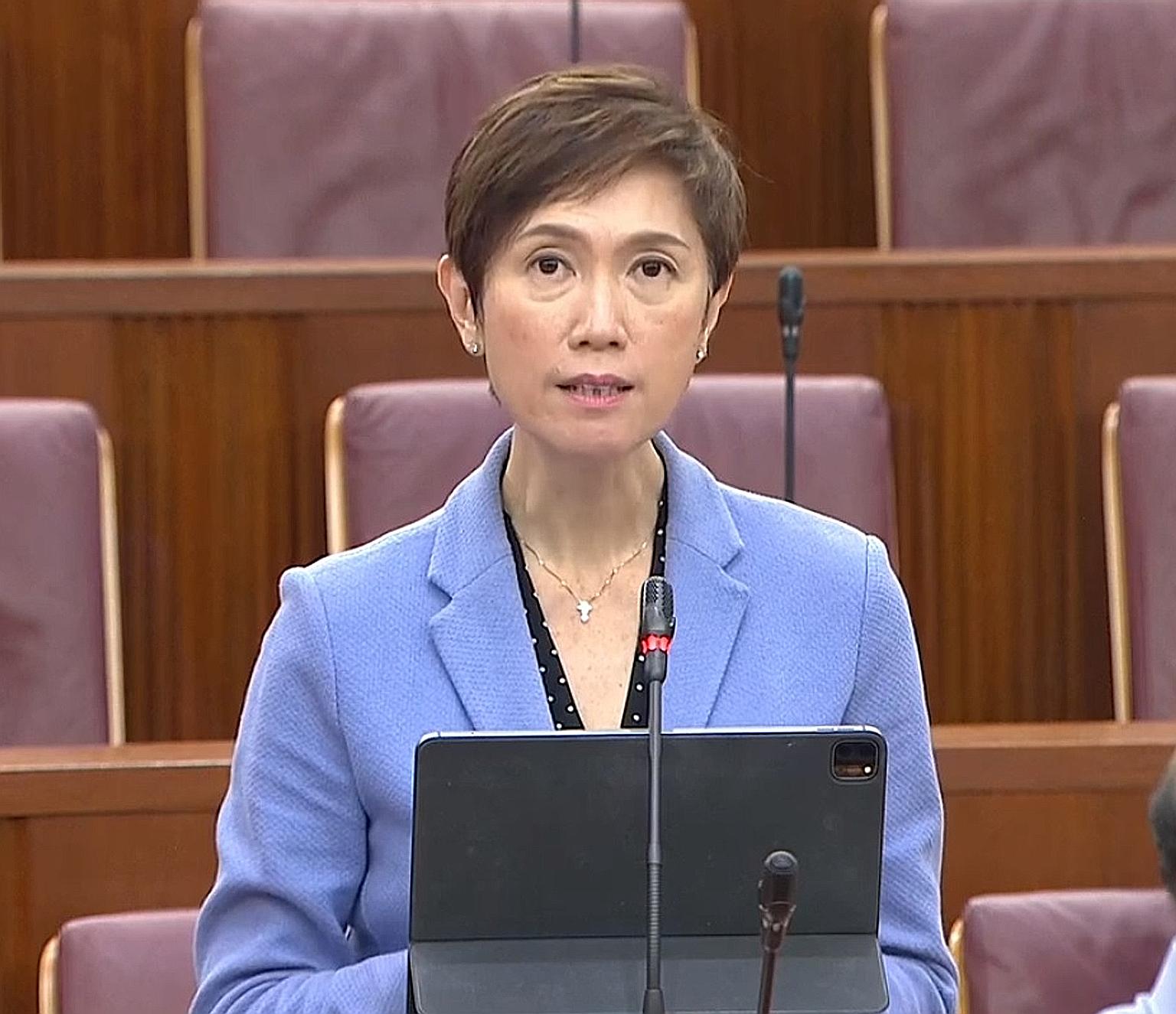Parliament Debate on ministries’ budgets: Manpower
Dependant's pass holders will need work pass to work
Change effective from May 1 and is consistent with recent moves, says Manpower Minister
Sign up now: Get ST's newsletters delivered to your inbox

Manpower Minister Josephine Teo.
From May 1, foreigners in Singapore on dependant's passes will need a work pass to work here, instead of a letter of consent.
This means their employers will need to apply for an Employment Pass (EP), S Pass or work permit for them, and the relevant qualifying salary, dependency ratio ceiling and levy will apply.
If they are already working, this must be done once their current letter of consent expires.
Manpower Minister Josephine Teo announced the change in Parliament yesterday during the debate on her ministry's budget, saying that it is "for consistency with recent work pass moves".
She noted that dependant's pass holders who have asked to work in Singapore on letters of consent make up about 1 per cent of all work pass holders. Most of them meet prevailing work pass criteria, but those that do not will have to stop working here.
As at last June, there were about 1.1 million work pass holders here, excluding foreign domestic workers. This suggests that about 11,000 dependant's pass holders are working on letters of consent.
An EP or S Pass holder must earn a fixed monthly salary of at least $6,000 to bring his spouse or unmarried children under 21 to Singapore on dependant's passes.
Currently, dependants of S Pass holders have to apply for a relevant work pass to work here, while dependants of skilled foreign professionals or entrepreneurs on EPs, EntrePasses or Personalised Employment Passes can apply for a letter of consent.
When the change kicks in, only dependant's pass holders who are business owners can work using a letter of consent, and only if they own at least 30 per cent of the company shares and their business creates local employment.
They must employ at least one Singaporean or permanent resident earning at least the prevailing local qualifying salary - currently $1,400 - and make contributions to the employee's Central Provident Fund (CPF) account for at least three months.
More details will be provided later.
Mrs Teo also set out her ministry's priorities in managing the foreign workforce and balancing the need for foreigners in some sectors while strengthening the Singaporean core, which several MPs had asked about on Tuesday.
The minister said: "Our fundamental objective is always to serve the interests of Singaporean workers. Access to foreign workers is meant to help grow a larger economic pie than we otherwise can. Therefore, the foreign workforce must act as a complement to our local workforce."
At the S Pass level - for foreigners earning a fixed monthly salary of at least $2,500 - employers should expect further changes to the rules to be phased in over this decade, said Mrs Teo.
S Pass policy has been tightened in the last two years, with sector quotas cut and the qualifying salary raised twice last year. Deputy Prime Minister Heng Swee Keat had announced a cut in the manufacturing sector S Pass quota from 20 per cent to 15 per cent by 2023 in the Feb 16 Budget.
Addressing the request by Mr Edward Chia (Holland-Bukit Timah GRC) for more "surgical" application of the work permit and S Pass quotas in sub-sectors, Mrs Teo said there is a limit to how much further the services sector can be differentiated.
The sub-sectors which lobby the hardest already hire the big majority of work permit holders in services, and relaxing quotas for each of them would amount to the overall quota being raised, she said.
She said the Ministry of Manpower (MOM) will focus instead on helping companies to be more manpower-lean while strengthening their Singaporean core.
She said periodic adjustments will continue to be made to the local qualifying salary - the minimum salary for local workers to count towards a company's headcount in calculating work permit and S Pass quotas - to ensure that local workers are not hired on a token salary. It will not be increased this year, to give companies time to recover from the impact of the Covid-19 pandemic.
As for skilled foreigners on EPs, MOM's aim is twofold, she said: To ensure that foreign professionals complement local staff, and to ensure employers practise fair hiring and improve the diversity of their foreign professionals, managers, executives and technicians.
The qualifying salary for EP holders was raised twice last year, and the ministry will explore possible refinements, she said. "The salary threshold is by no means a perfect gatekeeper of quality, but it is easy to understand and administer."
She explained that this method is favoured over an EP quota, which would limit Singapore's ability to compete for the most cutting-edge investments amid the worldwide shortage of tech and digital skills, hurting Singaporeans' longer-term career prospects.
She added that implementing levy charges for EP holders, as Non-Constituency MP Leong Mun Wai had called for last week, may not be useful either, as companies can employ overseas knowledge workers remotely.
Yesterday, Mr Leong asked if Singaporean workers have been disadvantaged because foreigners do not have to make CPF contributions, and there is no requirement for succession planning when companies apply for grants.
Mrs Teo replied that last year, amid the pandemic, the foreign workforce contracted by more than 180,000 workers, while the local workforce grew modestly.
"So, in that perspective, in what way has the local workforce been disadvantaged?" she asked.


